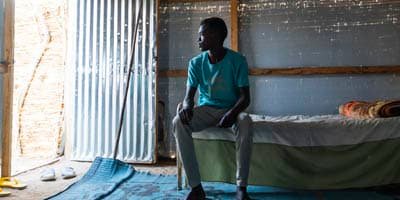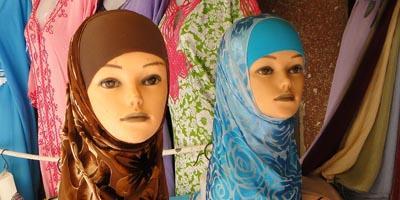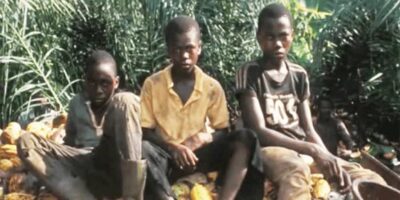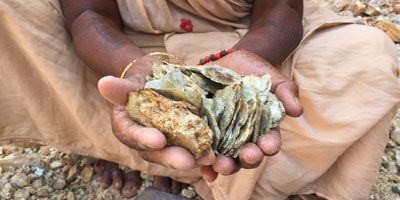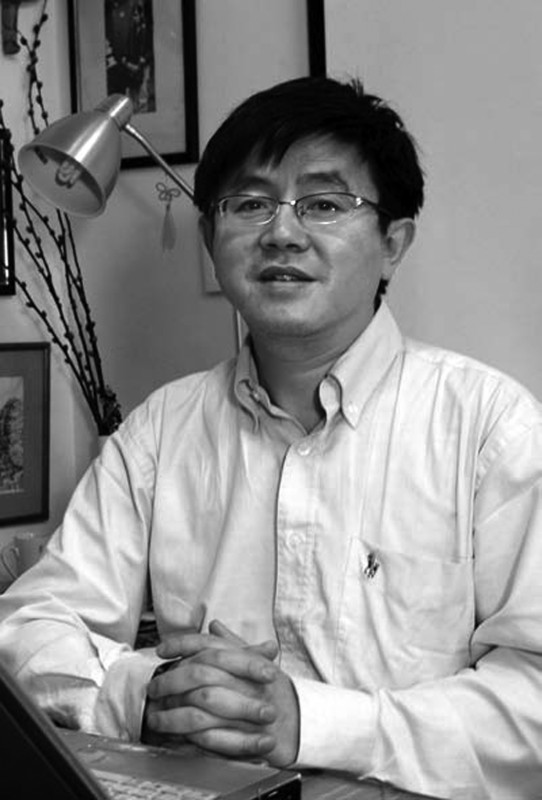
– Joe Amon, Human Rights Watch
Chinese HIV/AIDS activist Wan Yanhai has followed the spread of HIV/AIDS across his country since graduating from medical school in 1988. He was working with AIDS patients long before the government acknowledged China’s epidemic as a legitimate concern. He launched China’s first HIV/AIDS telephone hotline in 1992, while working as a public health official, to provide information and explain the risks of unprotected sex. Two years later, fired from his public health position, he founded China’s largest HIV/AIDS organization, the Beijing Aizhixing Institute.
Wan endured years of government harassment from the public security department, the state security department, the propaganda department and even the fire department. He was repeatedly detained, for days or weeks at a time.
The Beijing Aizhixing Institute has also been subjected to harassment. In 2006, the organization’s Blood Safety and Legal Human Rights Conference was banned. In 2008, at the time of the Beijing Olympics, Aizhixing staff faced constant police inquiry and had to carry identification with them at all times. At times the Institute has been unable to receive overseas remittances—a major source of its funding.
The difficulties intensified in 2010. In March, Wan received visits at work from the Taxation Bureau and the Commercial Bureau, claiming that his organization was unregistered. He was banned from lecturing at a university in Guangzhou and at all universities in the area. For two weeks he was continually watched by a police car parked outside his home.
Following dozens of phone calls and visits from government authorities in April, Wan finally fled to the United States with his wife and daughter. They left their home in Beijing, but complications arose with his daughter’s visa. They then hid for two weeks, first with friends in Guangzhou, then in Hong Kong, before catching a flight to Philadelphia in May.
The harassment of the Aizhixing institute continues. In July, for example, security forces cancelled the screening of a documentary about Tian Xi, an HIV/AIDS victim who was infected when receiving healthcare as a child.
Wan and his NGO are not unique in being targeted. “We’ve seen the repression of and crackdown on human rights activists in China for a long time,” said Lindsay Mossman, a campaigner with Amnesty International Canada. “There’s been a long-term and very worrying series of this kind of action in terms of civil society organizations and individual activists, including arbitrary detentions, searches, and censorship of publications of materials on websites.”
Wan said that what happened to him and the institute is “symptomatic of the broader discrimination, harassment and oppression which civil society NGOs experience generally in China.”
Dr. Gao Yaojie is an 83-year old cancer expert from Henan province who has devoted the last two decades of her life to helping HIV/AIDS victims. Since her first encounter with an AIDS patient in 1996, she has continually come head to head with authorities. Now living in the US, she communicated with me by email for this article.
“The Chinese government tries hard to cover the truth; people living in China don’t know the truth, and people who tell the truth are being oppressed.”
Gao played a key role in uncovering China’s blood scandal in the 1990s, in which state-run and private blood donation clinics were set up throughout rural China. Authorities encouraged villagers to sell their blood repeatedly. However, remote and understaffed clinics regularly carried out the procedures with unsanitary equipment, and often, once the plasma was extracted, clinics would re-infuse donors with blood from an untested, pooled source, with the intention of speeding their recovery so that they could donate again.
This led to a massive spread of HIV/AIDS across the Chinese countryside. The impact was most deeply felt in rural Henan province, where there were more than 200 state-owned blood stations, and even more private ones, and an estimated 500,000 HIV cases.
Gao was unfamiliar with AIDS symptoms when she first encountered them. She was bewildered when patients’ HIV tests came back positive, and her search for the source of the infection narrowed down to blood transfusions. Her sympathy went out to the victims, “Many of them are not educated. They don’t know how to write or how to speak. They are poor and sick. The only thing they know is to cry.”
Gao reported her findings to the government, but was frustrated by its lack of response. “Their attitudes were very bad and completely denied the fact that there was an AIDS epidemic in the villages.”
Although the government now acknowledges the HIV/AIDS crisis as an epidemic and has adopted official policies to hinder its spread, Gao believes the problem has not yet been resolved. There is an underground blood market and so the spread of HIV contaminated blood continues.
Gao’s campaigning to raise awareness about the continued blood and plasma infections, and to educate local people got no support from the government. “Afraid of losing face, the government doesn’t admit that blood contamination is the major reason for HIV/AIDS dissemination in China; instead, they insist that drug and sex are,” Gao wrote.
Awarded the Jonathan Mann Award for Health and Human Rights in 2001, and the Ramon Magsaysay Award for Public Service in 2003, she was not allowed to travel to receive her prizes.
In 2007 she was awarded the “Global Leadership Award, Women Changing Our World” by the Vital Voices Global Partnership. This time she was put under house arrest and monitored by more than 50 police officers. Her daughter was arrested for attempting to bring her food. After significant international intervention—including from Senator Clinton, a co-chair of Vital Voices—Chinese authorities allowed her to accept the award in Washington, D.C.
“The only reason why the government was so afraid of letting me go outside of the country is because they are afraid of me telling the truth of HIV/AIDS epidemic in China.”
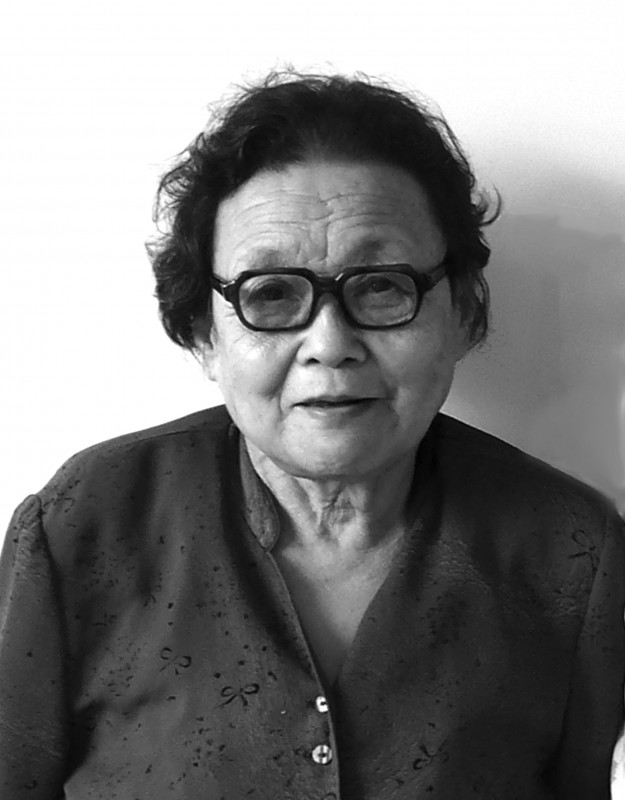
Wan, who lives in Philadelphia, also accepts that his time in China has ended for now, although he wishes he could bring his family back there. “I knew I had to relocate and find a new base from where I could fight back,” but added that “we are relaxed and happy in the USA.”
Wan, too, played a central role in uncovering the Henan blood scandal. “I was detained for four weeks by the State Security Department because of my role in investigating and exposing the blood scandal in Henan Province,” he wrote in a testimony for the Equal Rights Review.
His arrest came a week after he made public a classified report from the Henan Health Department that detailed the reasons for the epidemic and the Health Department response. (He had received the document anonymously by email.)
Joe Amon, director of Human Rights Watch’s Health and Human Rights division and former head of its HIV/AIDS program, says there is a disconnect between those who give the orders and those who carry them out. “For a long time there has been some conflict between national policies that are developed in Beijing, which might have progressive elements to them, and the reality on the ground.”
He says the harassment that the activists have endured is political. “While the government may be truly concerned about HIV, the issue of civil society participation is really the heart of democracy, which is a threat to the Chinese government as it’s now conceptualized.”
Wan agrees. “HIV/AIDS is a public health concern, which the Chinese government also cares about,” he wrote in a testimony for the Congressional-Executive Commission on China.
He believes that democracy is the key to progress. “”They’re not happy with the independence and the social activities of activists, By tolerating a strong civil society, the Chinese government would become stronger. By accepting political competition, the Chinese Communist Party would build up its capacity to manage in a changing and challenging era.”
Amnesty’s Lindsay Mossman says that the best thing Canadians can do is to “send a strong message to our government that, in any relationship it has with China, human rights should be at the center of all of its dealings. Holding the government to account, and building a strong civil society in China are really fundamental to upholding human rights in China.”
Joe Amon says the government of China cares very much about its international reputation. “Canadians can tell their elected representatives that they want these issues to be on the table, that they want there to be dialogue on human rights with the government of China.”
The Aizhixing institute
(“Aizhixing” means “Love, Knowledge, Action”)
The Aizhixing Institute advocates for the rights of HIV/AIDS victims to health care and other social services. It also provides education and community outreach to drug users, recovering addicts, sex workers, migrants, ethnic minorities, and lesbian, gay, bisexual, and transgender communities.
